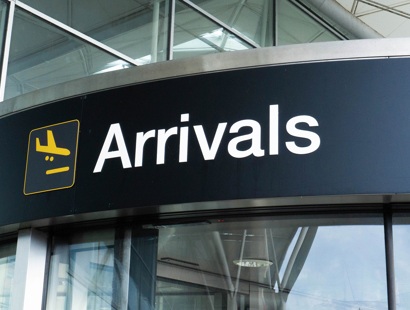
Practical tips for travelling abroad after separation
Associate Kate Macdonald advises on the essential documents needed when travelling abroad with your children post-separation.
The summer holidays are fast approaching and many families will no doubt be looking forward to travelling abroad for a well-deserved holiday. This may also be the first holiday you are taking with your children since separating from your spouse. In addition to the often lengthy checklist you will be putting together to ensure nothing is forgotten (such as passports, visas, e-tickets, any airline-specific travel requirements and plenty of sunscreen) there may be additional documents that you are required to take with you.
Prior to travelling abroad, you will need permission from the other parent (or anyone else who has parental responsibility for your child) or a court order. It is important to know what documents you may be required to take with you and ensure that they are prepared in a timely manner ahead of your intended trip. The documents needed may vary depending upon any specific requirements of the country to which you will be travelling.
What documents should I take?
To try and avoid any difficulties it is recommended that you take the following documents with you:
- court order (if any)
- a letter signed by the other parent consenting to the child travelling overseas (or by both parents if the child is travelling with a non-parent, such as grandparents). The letter should include important details about the travel being undertaken such as dates of travel, countries being visited, who the child is travelling with and the non-travelling parent’s contact details
- copy of the child’s birth certificate; and
- marriage certificate or final divorce order (formerly known as decree absolute) if you have a different surname to your child
Other countries (and airlines) may also have specific requirements for entry/departure. It is therefore crucial that you are aware of these to ensure you do not run into any difficulties prior to departure, or on your return journey home. You should check the requirements with the embassy or consulate of the relevant country. Examples of documents (in addition to the child’s passport and any relevant court order) which you may be asked to provide include:
United States
A letter of consent is required, preferably in English and notarised, from the non-travelling parent or signed by both parents.
Canada
Copies of the legal custody documents and a letter of authorisation signed by the non-travelling parent (and with that parent’s address and telephone number and a photocopy of their signed passport or national identity card).
Jamaica
Documentary evidence of the relationship between the child and parent (or other adult travelling), for example birth certificate, guardianship papers or consent letters.
The above is current at the time of publication and is not an exhaustive list. Where one parent has sole parental responsibility or ‘custody’ then further documents may be required. It does not take into account any vaccination requirements, including in relation to rules concerning Covid-19 vaccination status. If you have any questions or concerns then you should obtain legal advice well in advance of any intended travel dates.
Get in touch
If you would like to speak with a member of the team you can contact our family and children solicitors by email, by telephone on +44 (0)20 3826 7520 or complete our enquiry form.




